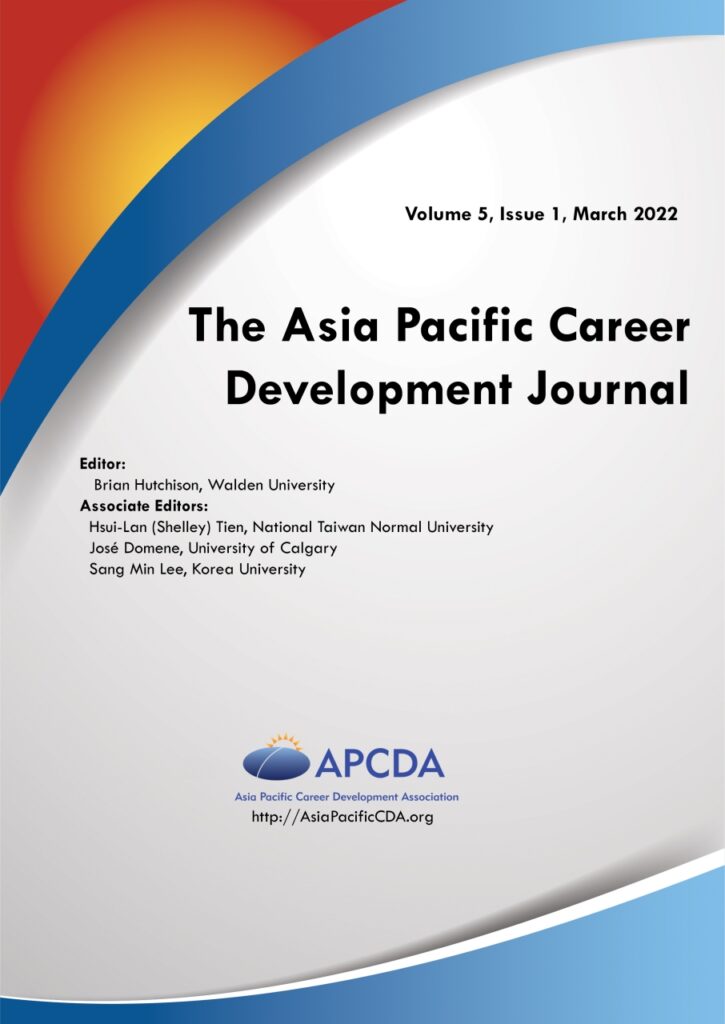The Asia Pacific Career Development Journal, Vol 5, No 1
Vol 5 No 1 (2022): March 2022 Issue
Published: 2022-03-14

Abstract: As our thoughts turn to the “new normal,” “future of work,” or the next wave of global disruption, I take solace in being able to turn my attention to the proximal things that now constitute the quality of “my new life.” The Asia Pacific Career Development Journal is one aspect of this different lived experience that sits with me as I reflect on my work.
Lead Article
Rebecca E. Como and José F. Domene
Abstract: Investigating work-life wellness is key to improving the physical health, mental health, and productivity of remote workers. Following the COVID-19 pandemic, more teleworkers are choosing to work remotely, and this may have an impact on their work-life wellness. We explored the structure and reliability of a work-life wellness scale with items adapted from three existing instruments. Participants were 199 remote workers from Western Canada. Participants were asked to rate the extent to which they agreed with the statements on a seven-point Likert scale. Exploratory factor analysis yielded two factors: work-life functioning and work-life interference. The scale was also found to have strong internal consistency.
Emprical Article
Dr. Scott Springer and Moana Numanga
Abstract: The purpose of this study was to identify the factors that motivate university students from Asia Pacific countries studying at an American university to select human resources (HR) as a possible career path. The qualitative research method of focus groups was used to collect data from 37 university students from a private university in the western United States who self-declared HR as their primary or secondary area of study in their bachelor’s degree programs. The study’s findings revealed the primary motivating factors for Asia Pacific university students to pursue HR as a career were the following:
- a perception that HR is a career in which participants could help others and make a difference in their countries;
- an interest in the tasks of HR as a profession;
- a belief that HR provided a high likelihood of securing employment after graduation
